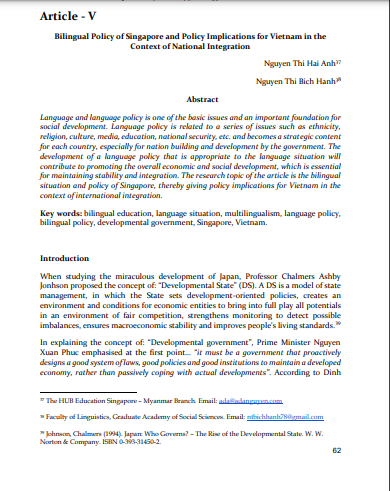Bilingual Policy of Singapore and Policy Implications for Vietnam in the Context of National Integration
DOI:
https://doi.org/10.54945/jjia.v2i4.68Keywords:
Bilingual education, Language situation, multilingualism, language policy, bilingual policy, developmental government, Singapore, VietnamAbstract
Language and language policy is one of the basic issues and an important foundation for social development. Language policy is related to a series of issues such as ethnicity, religion, culture, media, education, national security, etc. and becomes a strategic content for each country, especially for nation building and development by the government. The development of a language policy that is appropriate to the language situation will contribute to promoting the overall economic and social development, which is essential for maintaining stability and integration. The research topic of the article is the bilingual situation and policy of Singapore, thereby giving policy implications for Vietnam in the context of international integration.
Downloads
Metrics







